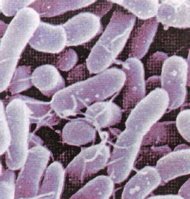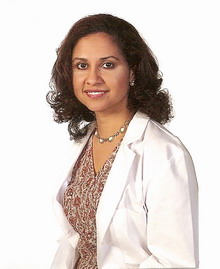
Here is another reason to implement probiotics or traditionally prepared fermented foods into you daily diet. The gut literally is the second brain. Total health begins in the gut, folks. If your GI tract isn't functioning very well, it's guaranteed your overall health will be compromised. Although I am not a big fan of nutritional supplementation, probiotics are the exception, and the only supplement I recommend for ALL new patients (unless of course they are already on one). I don't believe they need to stay on it the rest of their lives, but one to three months are usually beneficial until they are able to improve their diets.
----------------------------------------------------------
IAN JOHNSTON SCIENCE CORRESPONDENT
PROBIOTIC bacteria given to autistic children improved their concentration and behaviour so much that medical trials collapsed because parents refused to accept placebos, a scientist revealed yesterday.
The effect of the bacteria was so pronounced that some of the parents taking part in what was supposed to be a blind trial realised their children were taking something other than a placebo.
A number then refused to give their children the placebo when they were due to switch, resulting in the collapse of the trial.
Glenn Gibson, a microbiologist who ran the study of 40 autistic children aged between four and eight, said this meant it was difficult to draw any firm conclusions and he is planning to carry out further research.
However, he said parents had told him the probiotic bacteria was having a beneficial effect, resulting in "better concentration and better behaviour".
One parent said it was "heartbreaking" to have to stop their child taking it.
"It was really challenging for us and the parents. I'd really like to go back to it and do it in a better way, with perhaps more professional help from people who know how to deal with autistic children," said Prof Gibson.
"The trial ultimately failed because of the large number of drop-outs. About half the kids dropped out. Some of the parents worked out their child was on the test and didn't want to move on to the placebo."
Autistic children often suffer bowel conditions and Prof Gibson said a previous study had found high levels of a "bad" bacteria called clostridia in the gut.
The probiotic was then designed to reduce the levels of clostridia and promote "friendly" bacteria instead to see what effect this would have.
Prof Gibson, from Reading University, said the children appeared to show fewer signs of autism when taking the probiotic supplement, which was given in a powder once a day.
"Very subjectively, we asked the parents to fill in diaries about the mood of the children. We got very positive feedback generally," he said.
He said that certain kinds of clostridia produced neuro- toxins, which potentially could be the cause of autism or a contributory factor.
However, he said this was speculation and the apparent improvement could also simply be because the children had felt better.
"If your gut is not behaving yourself, you feel rough," Prof Gibson said.
The first bacteria in the gut is received from the mother during birth and then comes from the outside environment, with diet playing an important role.
"They [infants] may be under medication for an infection and that may have an effect," Prof Gibson said.
"There are all sorts of different factors that may affect that [the bacterial make-up of the gut]."
There was a scare over widely discredited claims that autism was linked to the MMR - measles, mumps and rubella - vaccine given to children.
Asked whether he thought childhood vaccines could have an effect, Prof Gibson said: "No. I don't think there is anything in this MMR business at all."
It is estimated that 535,000 people in the UK have some kind of autism, including a milder form called Asperger's Syndrome.
The condition affects four times as many boys as girls for reasons that are not clearly understood.
A spokeswoman for the National Autistic Society (NAS), the UK's leading charity for people with the condition and their families, said it followed new research into possible treatments with great interest.
She went on: "There is anecdotal evidence that certain vitamins and diets do have benefits for some people with autism. However, a great deal more research remains to be done in this area.
"The NAS looks forward to seeing the results of the further research that Professor Gibson hopes to conduct in the future."
She said that "rigorous scientific evaluation" was necessary to gauge the effects of any new treatment.
A whole range of therapies had been tried in the past, from medication and behavioural therapy to aromatherapy and swimming with dolphins, with varying degrees of success.

